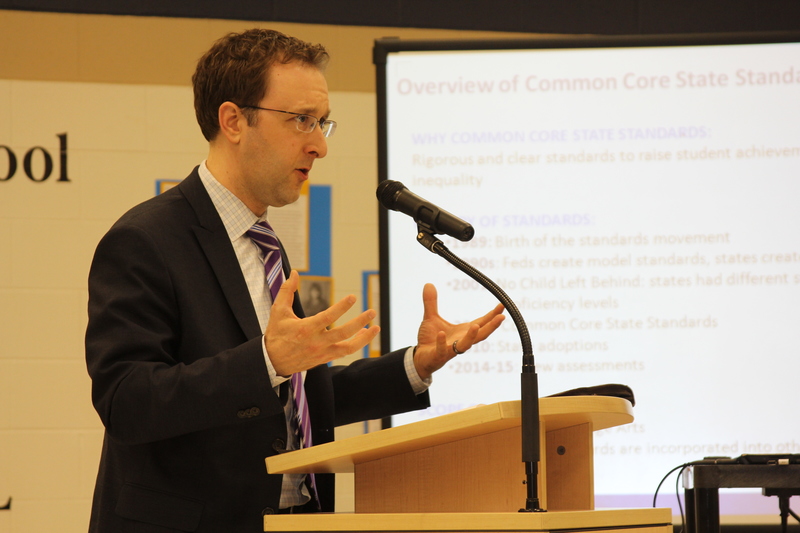The state's top educator attended Cape Henlopen School District's recent board of education meeting to talk about a new statewide test for students and aligning Delaware's curriculum with other states.
Secretary of Education Mark Murphy said Delaware will implement the same educational standards that other states are using in an effort to develop nationwide standards for what students are expected to know, dubbed common core standards.
"This work defines a path for our students and educators to have success," he told Cape Henlopen school board members on March 28.
Some board members were concerned that the state may have rushed into another new education program without thoroughly thinking it through. Board Vice President Spencer Brittingham said he wondered why other states are opting out of the common core program or refusing to sign up for it in the first place.
"Why are they opting out and how invested are we?" he asked.
Murphy said Texas and a few other states have opted out of the program because those states say they already have strong standards in place. According to a recent National Review article, 45 states and Washington, D.C., have agreed to implement common core standards in their states.
Still, board member Sandi Minard said school boards have had little input in the development of the common core.
"I'm disappointed that school boards were left out of the decision-making process," she said.
Murphy said school boards will continue to make curriculum decisions after common core is adopted. States that have signed on to it have agreed to minimum standards students must meet, he said. He noted Massachusetts participated in developing standards and rigor – a state considered by some to be the gold standard of education.
Another change resulting from Delaware's participation in common core is a new test for students.
Delaware is one of 20 states that will try a pilot student achievement test called Smarter Balanced to measure student growth. The pilot tests will be administered by May, according to the Smarter Balanced website.
"We have not adopted Smarter Balanced, but we're on a path to do so," said Murphy.
Delaware began its own testing with the Delaware State Testing Program, known as DSTP, in 2000. In 2010, officials changed over to a computerized test, Delaware Comprehensive Assessment System or DCAS.
Minard said she was wary of such an emphasis on testing, particularly when U.S. student scores are often compared to other countries that test only their top learners.
"I think if we're realistic about where our kids should be, we should be realistic about the data we share," she said.
Murphy agreed.
"I've been to China and Singapore, and I'm tired of making those comparisons to our children, too," he said.
Having already worked out the kinks of the current test, Minard also said she is unsure about taking on yet another new test.
"I feel we've already gone through experimental, and I'd rather not go through these issues," she said.
Murphy said Delaware should be a step ahead of other states because it switched to a computer-based test with DCAS.
Board member Jen Burton asked what role writing would play on the new test.
"I feel like we got away from writing and grammar construction," she said.
Unlike the DSTP, which had included a writing section of the test, the computerized DCAS did not test writing skills.
"When DCAS came along the focus wasn't on writing as it was prior," said Donna Kolakowski, Cape's supervisor of elementary education.
The Smarter Balanced test will include text-based writing, said Michael Kelley, director of curriculum and instruction.
The emphasis will be on informative texts, he said, noting English classrooms are still going to look like they do today.
"That doesn't mean we're taking literature out," he said. "We will add informative texts."
























































